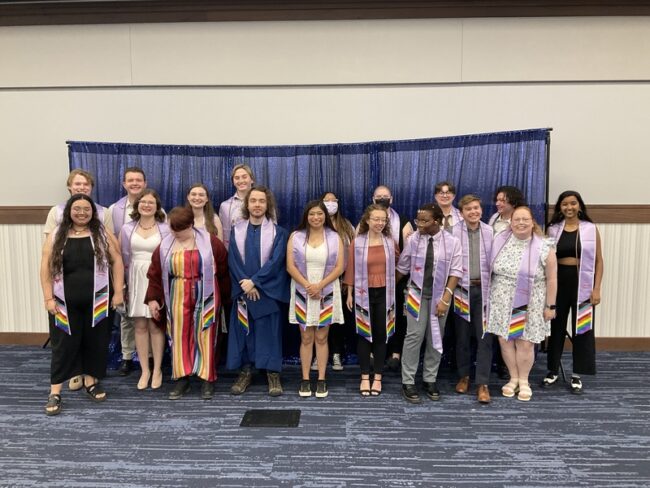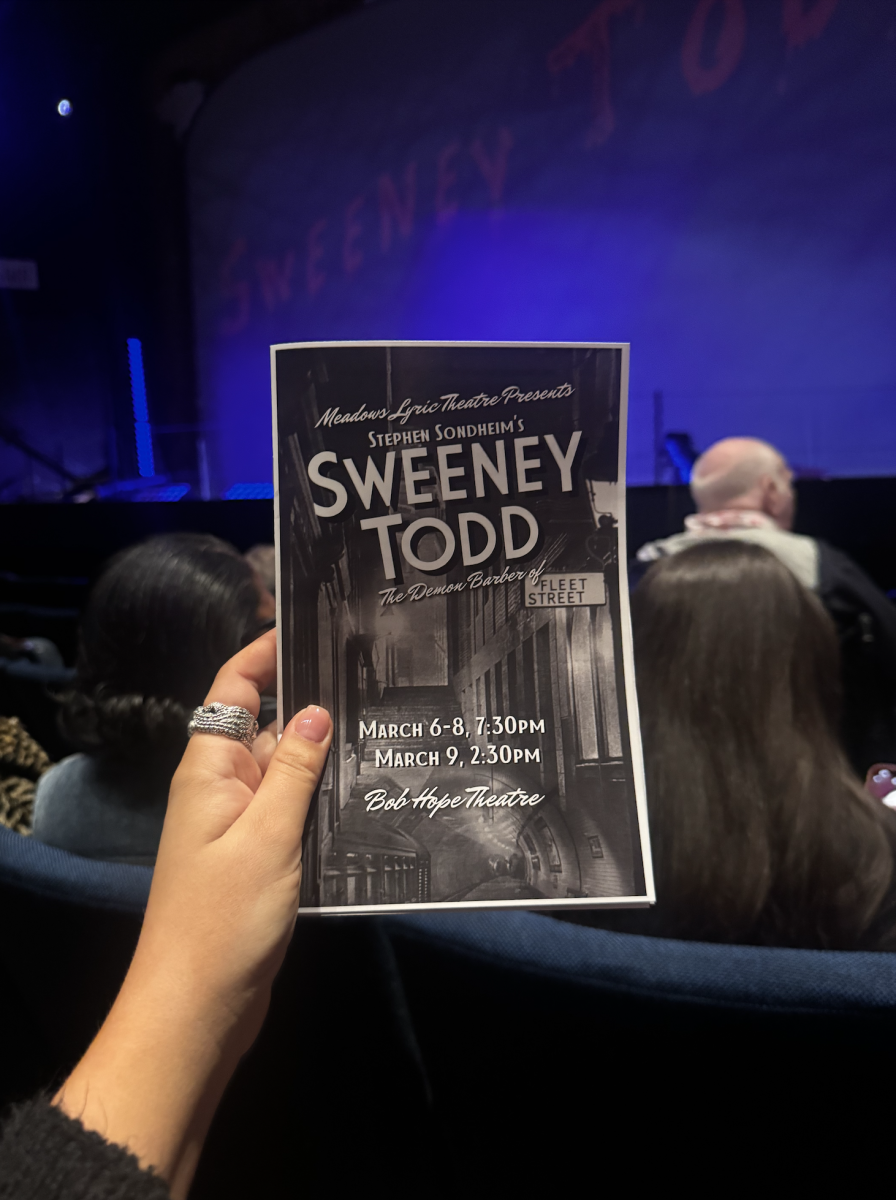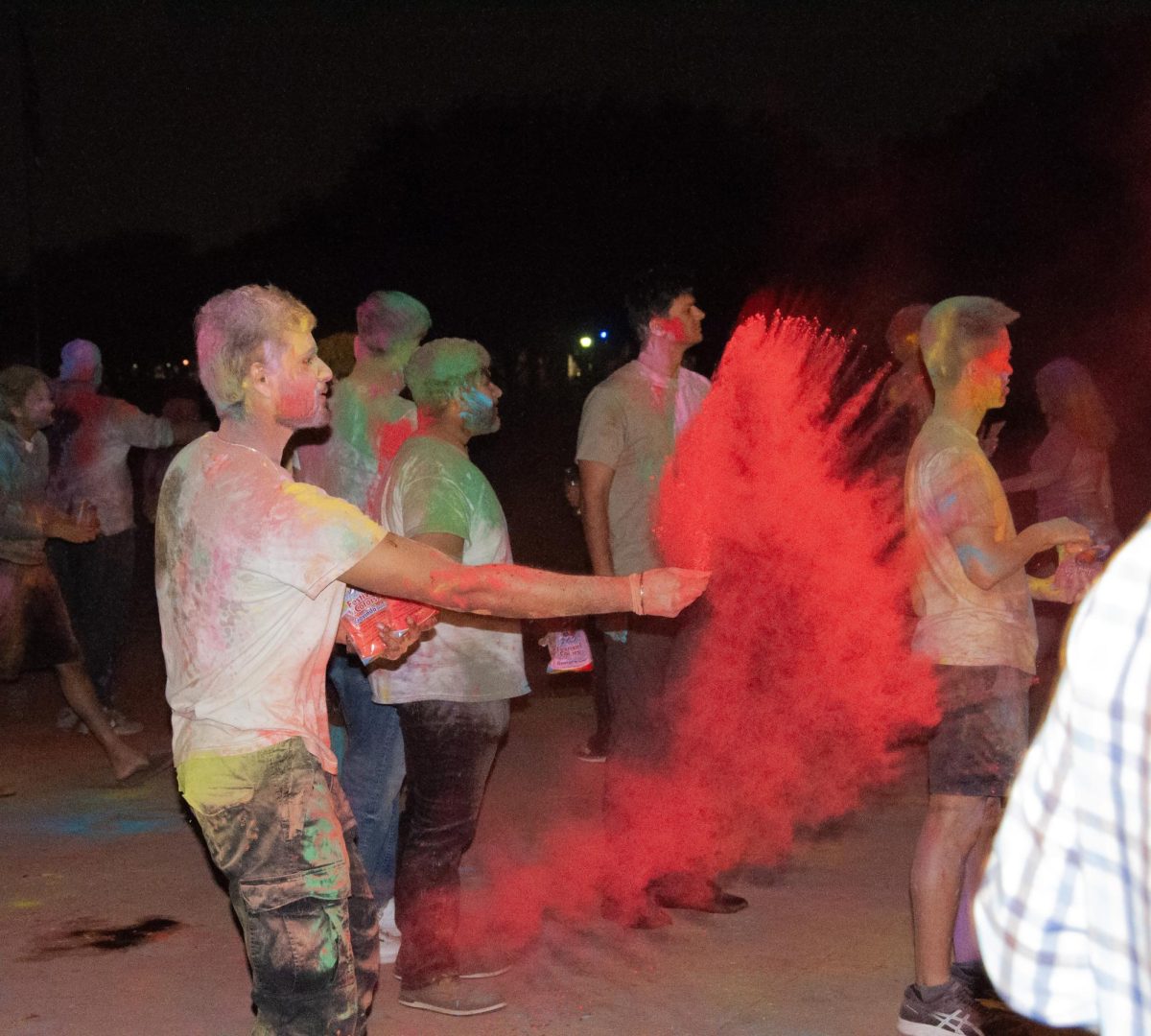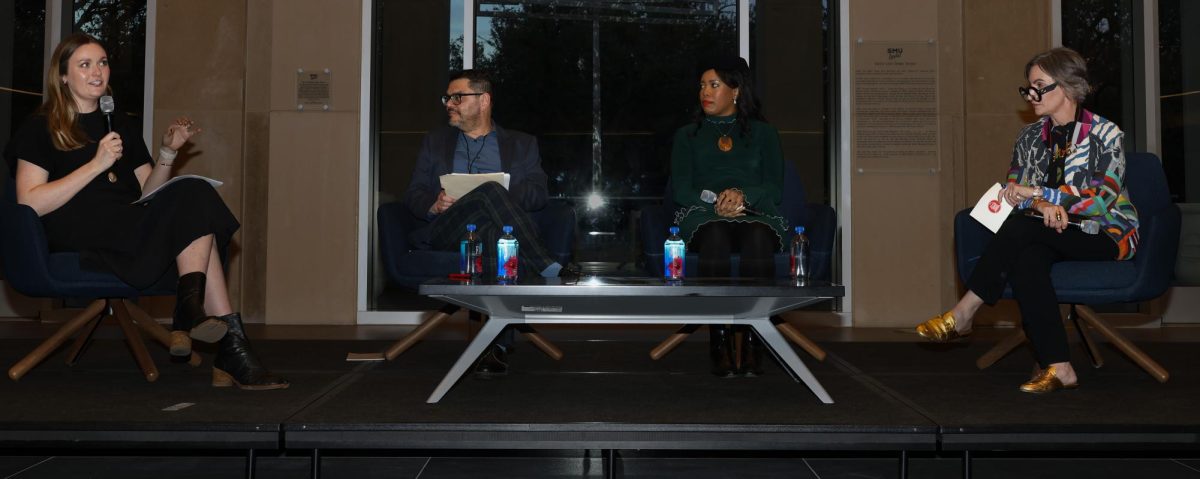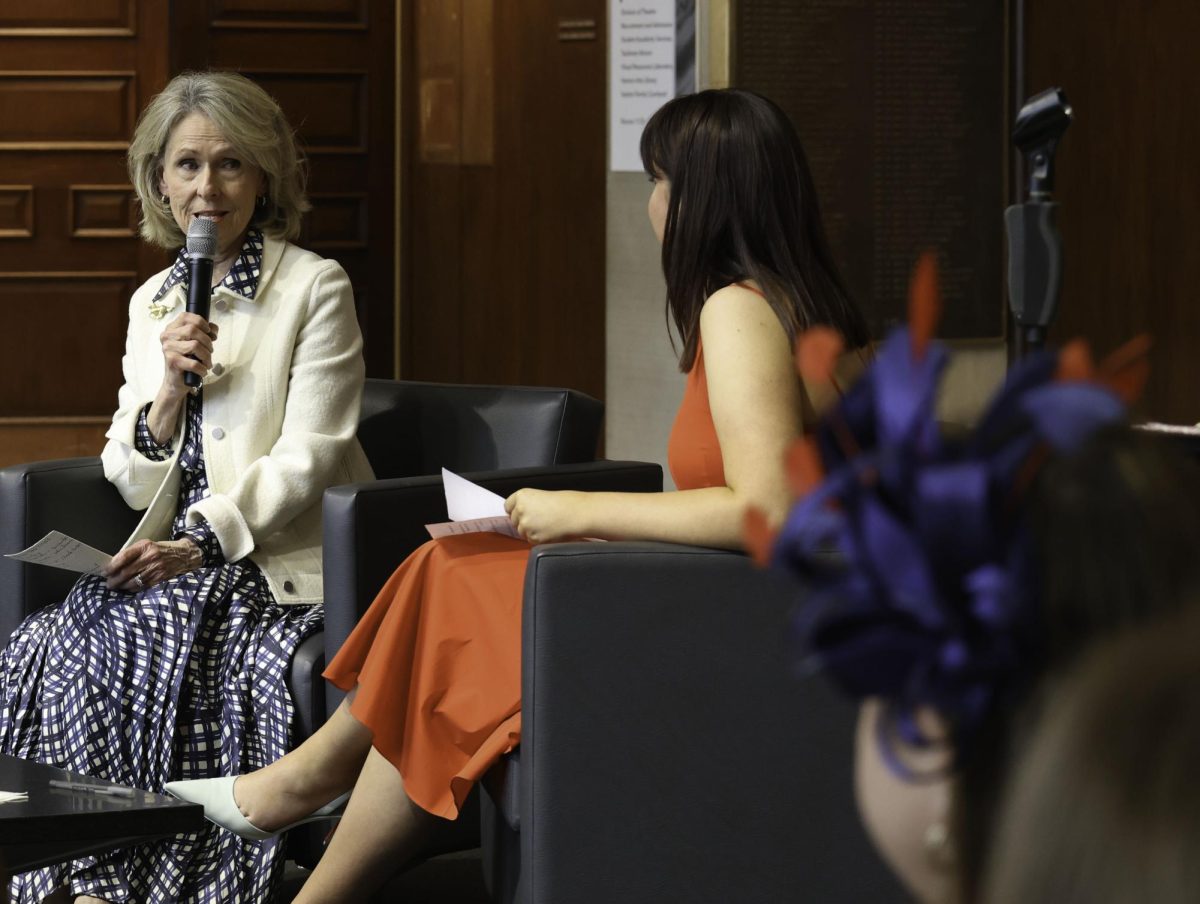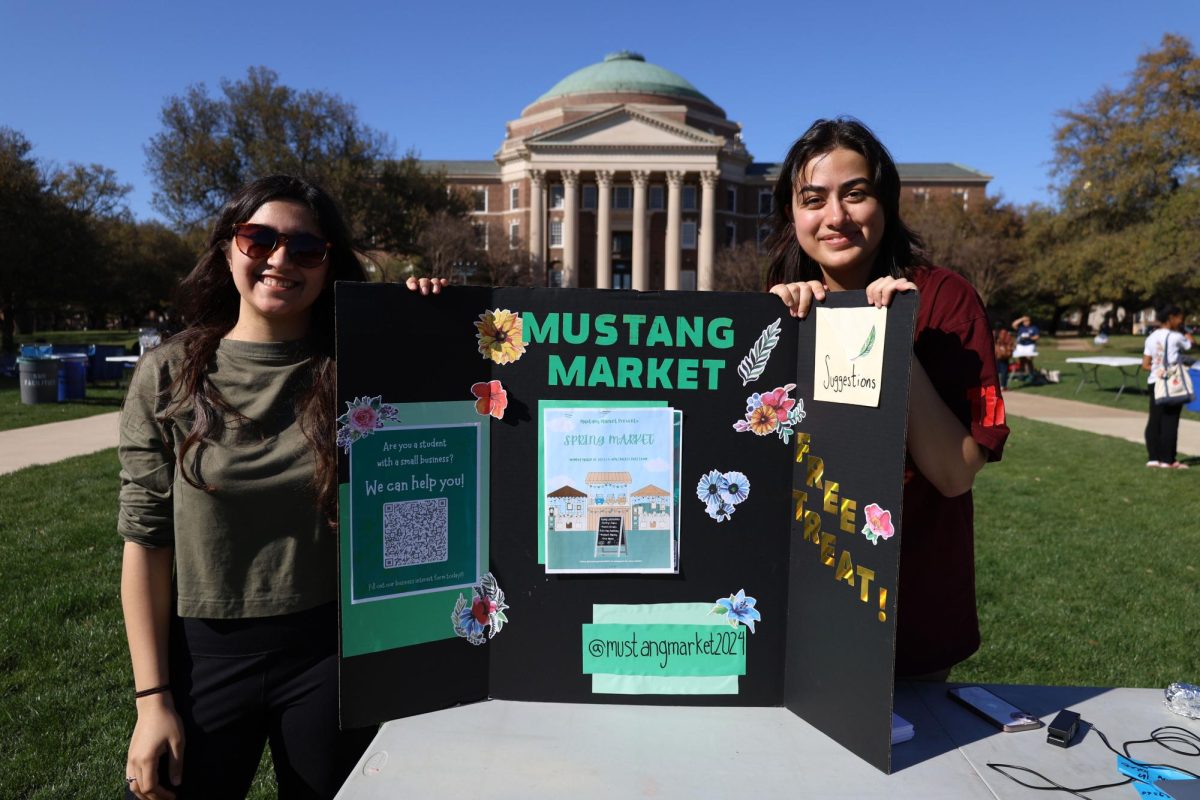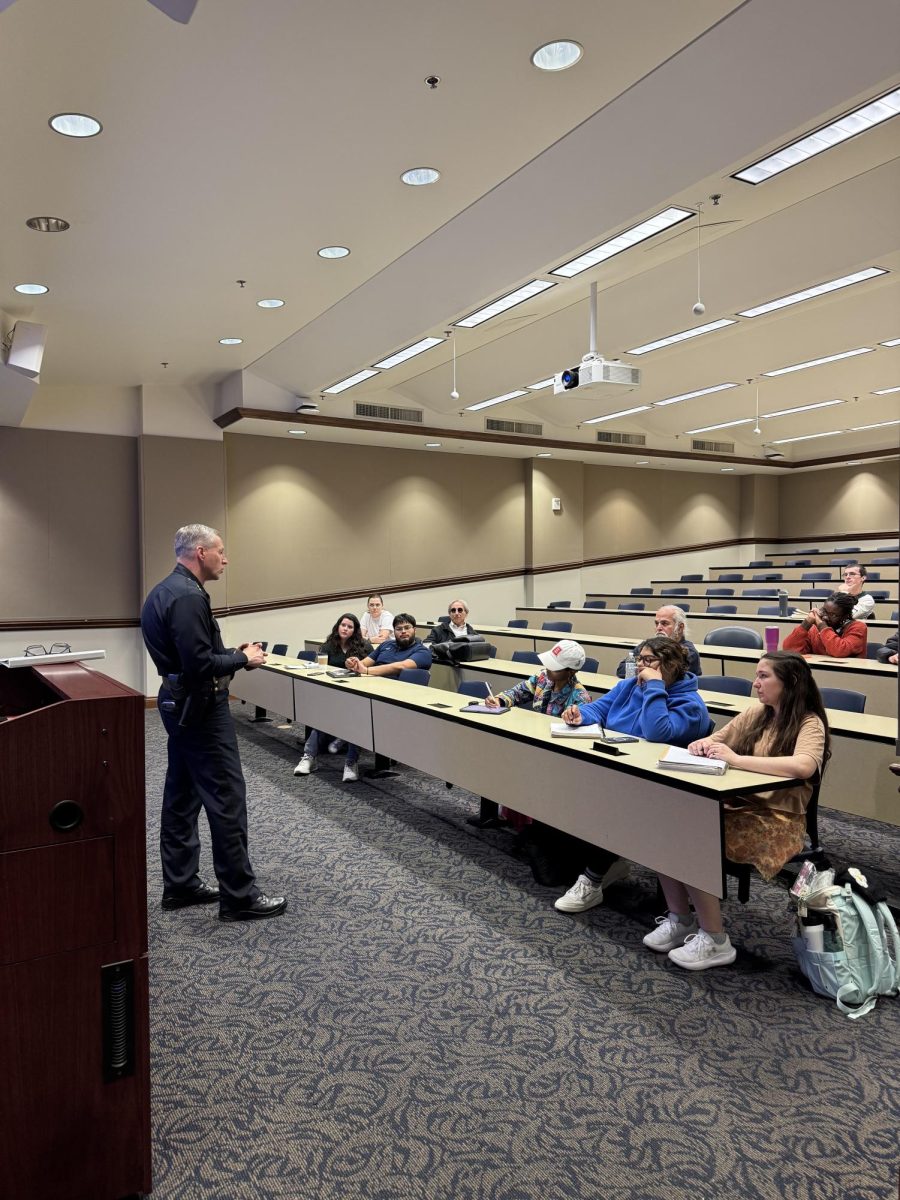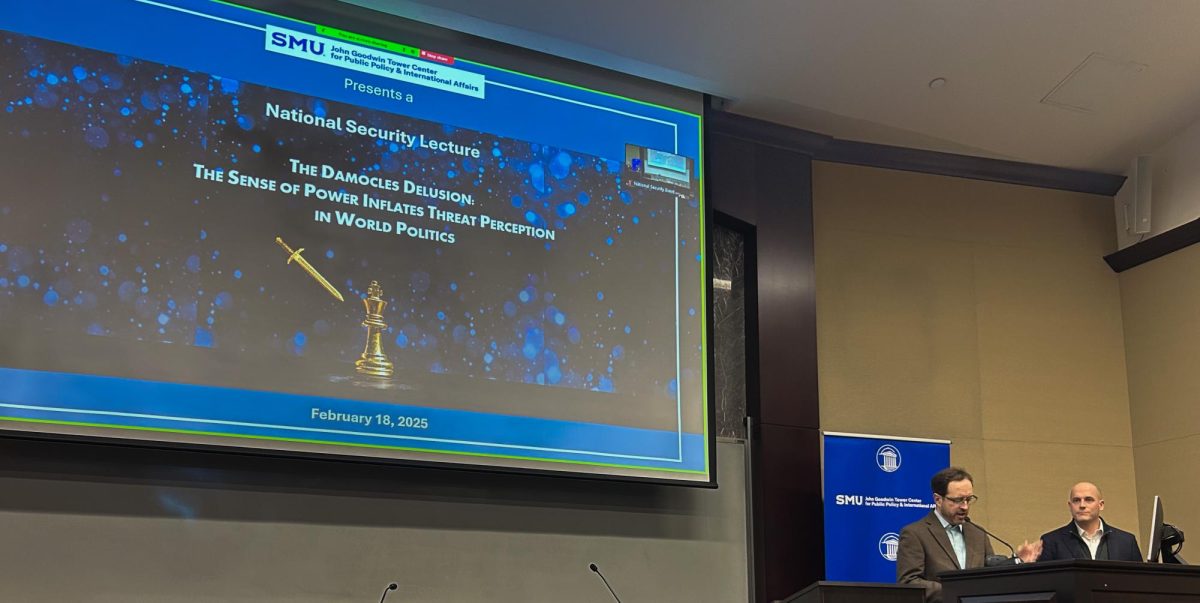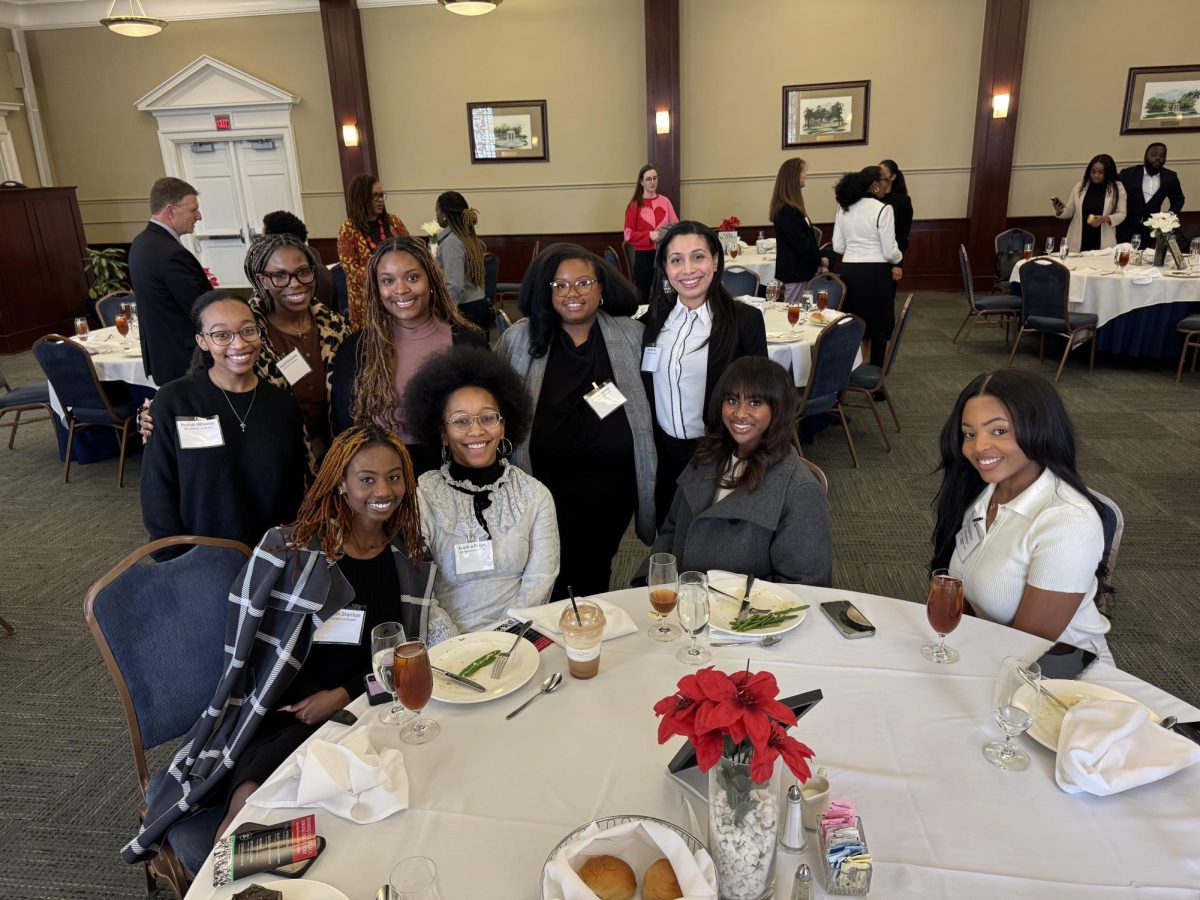SMU’s Women and LGBT Center hosted its first-ever Lavender Graduation Ceremony, just one day after its second Pride Visibility Day celebration.
As the ceremony commenced, many who identified with the LGBTQ+ community took time to recognize the progressive work being done on the university campus.
“The inclusivity effort at SMU has been an ongoing focus for the university ever since I started here as a freshman in 2017,” Matthew Esparza, former student and coordinator of the Women and LGBT Center at SMU, said. “Pride Visibility Day is a great example of an important program that is for students and by students.“
The Lavender Ceremony celebrated graduating seniors and others contributing to SMU’s LGBTQ+ community.
It is important for the university to share this burden of creating a more equitable campus with the students in a proactive manner, Esparza said.
“[The] Lavender Ceremony is an example of the type of service I hope SMU as a University can continue to provide to students,” he said.
All the graduates received a lavender graduation stole and rainbow cord to wear during the ceremony, congratulating them for their efforts during their time at SMU. After the ceremony, a reception for the graduates and their families was held in the Hughes-Trigg Student Center.
Over 40 attendees were present at the event, including parents, students and faculty members. The event began with a speech by Jacob Esparza, who talked about the significance of the SMU Women’s and LGBT center, and the many achievements of the graduates.
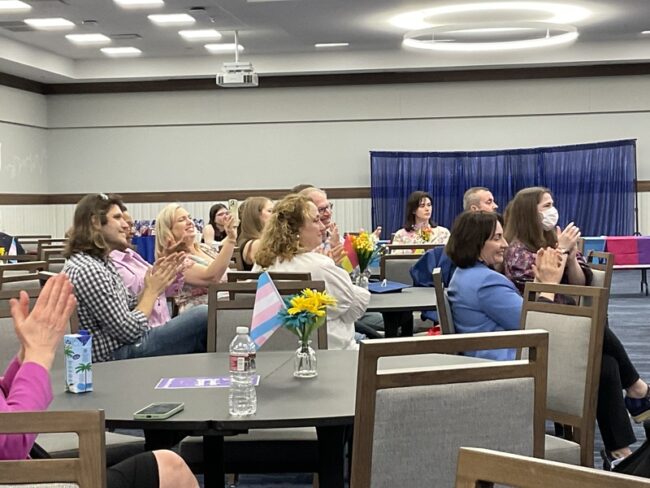
The Lavender Ceremony was followed by the SPECTRUM Prom, another celebration aimed to bring together students who identify as LGBTQ+, which included dancing, board games and food. SPECTRUM is an organization at SMU targeted towards providing information, resources and a free space for self-expression for the LGBTQ+ community and its allies.
“I think these events are extremely important, especially at a campus like SMU because they validate various student identities, and celebrate students who deserve to be celebrated,” Lili Beth Ramirez, an SMU alumnus, said.
For graduating senior Ash Thye, seeing SMU students and staff honor the queer community means a lot.
“I’m really glad this [the Lavender ceremony] exists,” Thye said. “I feel like with the groundswell of queer student organizing we’ve seen the past couple years, this feels like a really natural progression from last year.”
Thye advocated for LGBTQ+ spaces and accommodations and said the campus has progressed.
“It [SMU] definitely come a long way since I got here,” Thye said. “When you get to SMU and you’re queer, it can feel really alienating and terrifying. Luckily, I found that pretty soon in the Human Rights program in the Center, but I know a lot of students who haven’t had that same experience.”
Graduating with majors in Human Rights and Environmental Anthropology, Thye’s plan after college was to pursue a career in environmental justice education. But weeks after his return from the Capitol where he went to testify against anti-trans legislation, he’s rethinking his plans.
“For the past year or so, I have known that I wanted to take the work I did as an undergraduate in LGBT history and continue that where I can,” he said. “I spent 19 hours sitting in the capitol to testify against an anti-trans law. I saw the way the Senate like broke house rules, shutting down testimony early so only 100 of the 500 people were able to speak, so I’m kind of questioning my pen after graduation a little bit and I think I want to orient more towards creating original opportunities to support queer youth and trans youth specifically.”
In some states such as Idaho, Kansas and Indiana, laws on gender-affirming care for minors have been reversed, and there is increasing pressure in Texas to follow suit. Thye’s visit was to prevent one such law from passing in the Texas senate.
According to Trans Legislation Tracker, there have been 498 bills proposed across 49 U.S. states in 2023. More than 40 of those have passed and been introduced in states like Arkansas, North Dakota and Utah.
This wave of anti-transgender legislation comes at a time for many youths who identify as LGBTQ+, and according to a report by UCLA School of Law’s Williams Institute, trans-Americans are four times more likely to be victims of violent crime than their binary-identifying peers.
For Thye, who identifies as a trans student, there is still much work to be done at SMU as it continues its journey towards being more gender inclusive.
At SMU, the Women and LGBT Center plans, organizes, and holds multiple events to empower students who identify as LGBTQ+. Events like the Lavender Ceremony, LGBT Symposium, the LGBT Mentorship Program and other relevant workshops are held throughout the year.
In September 2021, SMU was recognized as one of “10 Religious Schools Living Up to LGBTQ-Inclusive Values” in a report by Campus Pride, a non-profit aimed at improving inclusivity efforts in higher education. The report was based on the Campus Pride Index, a measurement that indicates institutional commitment to LGBTQ-inclusive policy, program and practice.
According to Campus Pride, among universities in Texas, SMU ranks as one of the top in overall LGBTQ inclusion efforts compared to neighboring institutions, such as the University of Houston, University of Texas at Dallas and Texas A&M Commerce.
For more information about the Women’s and LGBT Center at SMU, contact Jacob Esparza at women@smu.edu.




